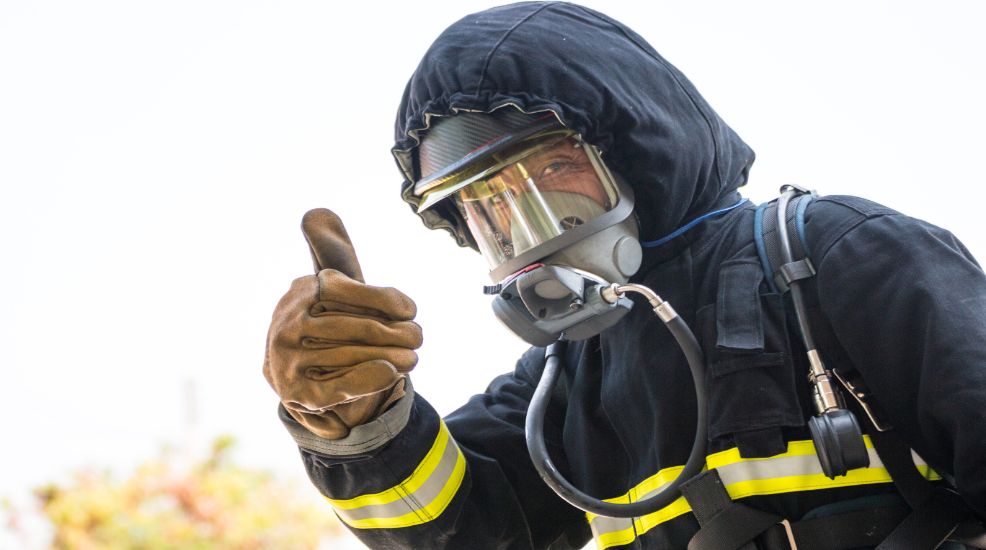
01 Apr Fire Safety Myths
Many people underestimate the dangers of fires and the importance of fire safety in their workplaces and homes. A lot of this is due to widespread misunderstandings and fire safety myths about fires and fire safety that many people still hold.
We’re here to debunk some of these myths so you can know what’s true and what’s not. We hope that by dispelling some of these common myths, you and others will realise how critical basic fire safety is.
7 Fire Safety Myths That People Still Believe
Common misconceptions about fires and fire safety:
When a fire breaks out, people intuitively know what to do.
While we all have the impulse to flee a fire, in the heat of the moment, we may easily get agitated and make poor judgments. This is concerning since even the tiniest error might result in serious repercussions if a fire breaks out. Without adequate fire safety training, never assume that you, your family, or your colleagues will always know what to do in the event of a fire. In the field of fire safety, knowledge is power, and adequate training is important for staying safe during a fire. You should commit to orienting and teaching your family or employees about appropriate fire safety in order to keep them as safe as possible.
When you’re sleeping, smoke from a fire will always wake you up.
Even while smoke has a strong and distinct odour, it is frequently insufficient to wake you up in the middle of the night which is one of the reasons why a lot of fires happen at night. This is due to the fact that our sense of smell is typically impaired when we sleep, and by the time we detect smoke and wake up, the fire may have already spread. To keep your home or workplace secure, you should never depend only on your sense of smell.
Smoke and fire alarms do not need maintenance.
Many people believe that, like fire extinguishers, smoke alarms and fire alarms last indefinitely and don’t need maintenance or replacement once installed. However, you must monitor and maintain these alarms on a regular basis. You’ll need to test them on a regular basis to ensure they’re working correctly, in addition to changing their batteries or power sources when they run out.
Smoke and fire alarms that are out of batteries or aren’t operating correctly are almost worthless. New requirements for smoke alarm installation and maintenance have been implemented, requiring additional monitoring and compliance.
FIRE STRATEGY – ARE YOU ACCOUNTABLE? SPEAK TO AN EXPERT
You have plenty of time to get out of a fire.
One of the things that most people are startled by when it comes to flames is how rapidly they can spread. A tiny flame may swiftly spread and turn into a larger fire in a matter of minutes or even seconds, particularly if there are many combustible materials around.
Also, the larger a fire becomes, the more quickly it may spread and the more difficult it is to put out. No matter how tiny or minor a fire seems to be, it should always be treated as such.
After they’ve been used, fire extinguishers just need to be replaced.
Fire extinguishers may last for years, but they aren’t indestructible. They also have a tendency to lose effectiveness over time. Even if they’ve never been used, fire extinguishers, like other fire safety equipment, need to be maintained after a specific amount of time. In fact, UK Standards 1851.1 requires that fire extinguishers be maintained on a regular basis.
You’ll also need to inspect them on a regular basis to ensure that they’re usable and in excellent working order, with no indications of wear or damage.
D.S.E.A.R – DANGEROUS SUBSTANCES AND EXPLOSIVE ATMOSPHERES REGULATIONS. SPEAK TO AN EXPERT
In a fire, flames do the greatest damage or injuries.
Although fires are deadly and life-threatening, it is the smoke that injures or hurts people the most in a fire. Smoke may quickly smother or cause you to pass out due to the numerous hazardous compounds it contains. Thick smoke may quickly disorient you, making a safe and timely escape more difficult.
Buildings that are newer are always safer than those that are older.
In terms of fire safety, a building’s age is only a number. Although modern buildings may seem to be safer than older structures, they are not always safer in the event of a fire. When it comes to fire safety, the age of a structure matters very little. The fire safety systems, equipment, and precautions in place are most important. A structure, no matter how modern, might be more hazardous if it is poorly constructed for fire safety or has malfunctioning equipment.
Do you need fire safety training from professionals?
There is no such thing as being too safe when it comes to fires. Consider enrolling your family or workers in one of our training courses to train with our fire safety professionals if you want to empower them with the necessary fire safety information.
Dangerous Substances and Explosive Atmospheres Regulations 2002 (DSEAR) click here.
If you would like to arrange a free fire risk consultation, contact us
My Fire Safety. Co-Space, 25 Town Square,
Stevenage, SG1 1BP. 0800 999 11 25






Sorry, the comment form is closed at this time.